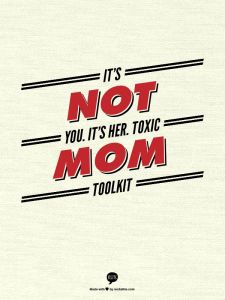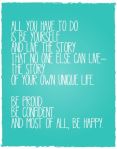 One of the very first things I did when I started writing Toxic Mom Toolkit was to design a brief questionnaire to help me collect real stories of growing up with a super toxic mother. Many of the mini-memoir chapters in my book started with an email from someone brave enough to take the survey and then send it back to me.
One of the very first things I did when I started writing Toxic Mom Toolkit was to design a brief questionnaire to help me collect real stories of growing up with a super toxic mother. Many of the mini-memoir chapters in my book started with an email from someone brave enough to take the survey and then send it back to me.
Right now I am collecting surveys from men for a book crafted specifically for male survivors of toxic parenting and I still need more stories. But I was also recently reminded of how therapeutic it can be for people to fill these out — so I decided to mesh the original and the men’s survey and fine-tune the original 20 Questions and re-issue it. It is important to me to keep learning about our community and these questionnaires capture so many things that would never be included in a quick conversation, email or Facebook post.
If you would like to fill one out, I would love to read it. They are for my eyes only and are confidential. If I decide I’d like to use yours to create a chapter for my new book for guys, I will ask your permission. As a writer, I need to know who you are really, but you can remain anonymous and we can change names, locations, etc. to protect the guilty parties.
So here is the 2016 edition of 20 Questions Every Adult Child of a Toxic Mom Should Ask Themselves:
20 Questions for Adult Children of Toxic Mothers
Your name:
Your age:
Contacts: Email & Phone:
Your location/Country & City:
Please email your completed survey to newsyrayne@gmail.com

Your Story Matters!
- Tell us about you. What year where you born and where does your birth fit in among siblings? Please provide a basic description of your parents/family. Did your family grow through adoption or foster placement?
- Tell me the story of how your parents met.
- Tell me about each of your parent’s teen years and what their parents did for a living. Include any unusual relationships within the family that are pertinent to your family life today.
- Describe the arc of your academic and professional life to present. What is your current occupation? If you volunteer in your community, how often? Doing what?
- Describe the relationship with your mother in three segments: as a child, a teen and young adult.
- How old were you when you first realized your mother was different than other mothers?
- What is your biggest criticism of your mother?
- What would she criticize about you?
- Describe any significant periods of estrangement. How easy (or difficult) was it to limit (or cut off) contact?
- How has your relationship with your mother affected your relationships with others?
- How many friends can you really talk to about your mother?
- Describe your current family status. Do you have children? If not, why not?
- Tell me about your occupation, why you chose it. Tell me about your hobbies.
- How many siblings do you have? Are you close or estranged? Why?
- Describe your current relationship with your mother. Given your current levels of contact how are you viewed within your family?
- Have you ever talked to a therapist about your mother? Was it helpful?
- Moving forward, do you anticipate any changes in your view of your mother?
- Do you experience personal guilt, social guilt or remorse about decisions you’ve made regarding your mother?
- As your mother ages, do you see yourself having more or less contact? Why?
- Tell me what your ACES score is/just the number. Please make a note of your ACES score at the top of the first page. Here is a link to the test: http://www.npr.org/sections/health-shots/2015/03/02/387007941/take-the-ace-quiz-and-learn-what-it-does-and-doesnt-mean
Thank you!























